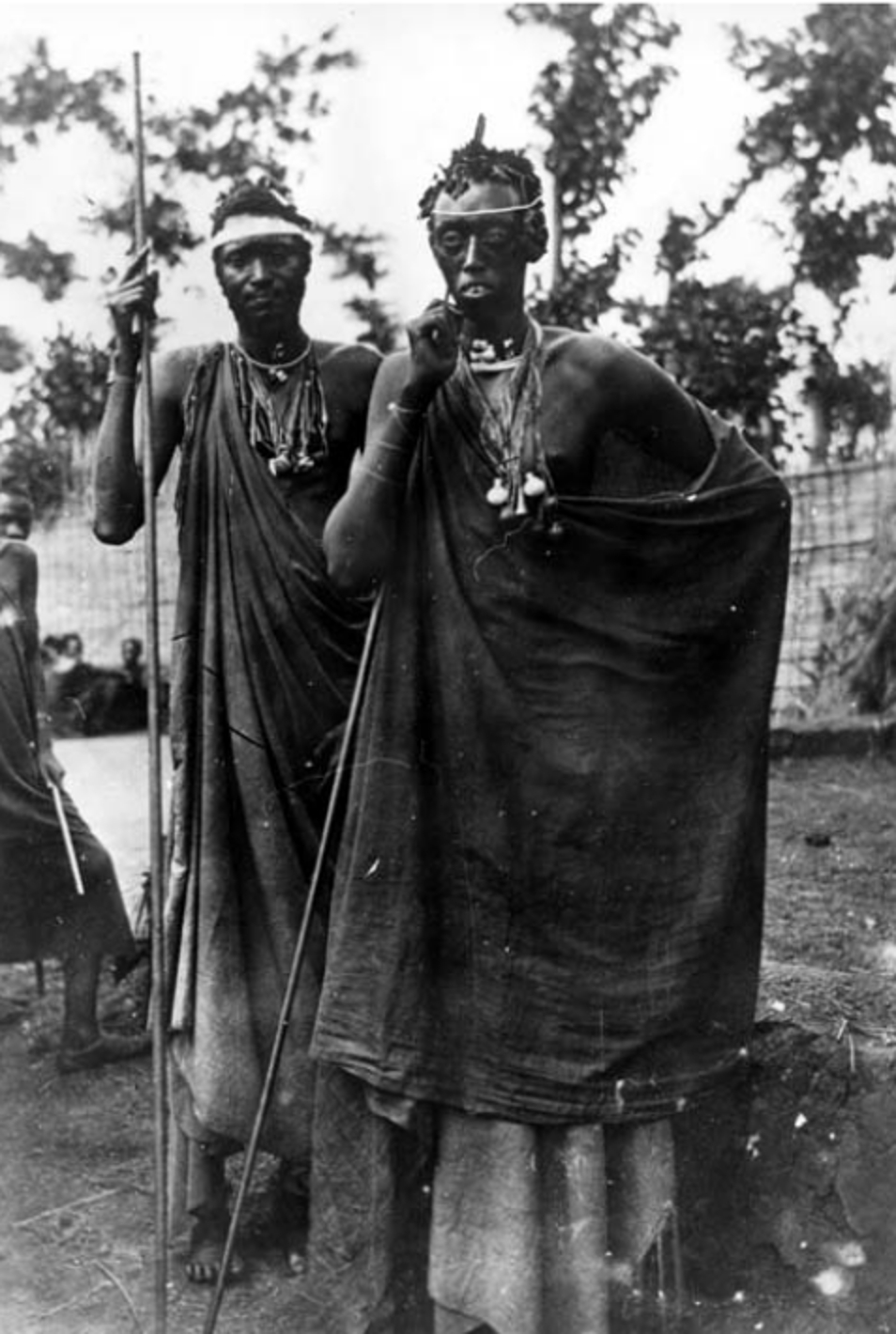On the difficulties of being a racist: Black is beautiful!?
 |
| Two Germans during the demonstration of Rwandan athletes (DKG-Archive) |
Colonial encounters were also beauty contests.
For those, who went to Africa at the end of the 19th century, racist prejudices belonged to their usual baggage like the sun helmet and the hunting rifle. Most Germans, however, were hardly familiar with the elaborated debates and theories of the 19th century academics who tried to explain why Europeans were superior to Africans. For them, racism was a question of more mundane and visible differences. Bodies and their aesthetics became in this regard very important. Many German accounts describe the supposed ugliness and dirtiness of Africans. Europeans, they concluded, were superior because they were more beautiful than Africans.
Today this hard to comprehend and it may have been even more so the case for Africans, who then encountered the Europeans, soaked with sweet, with their sunburned reddened skin and the first signs of the consequences of a modern consumer culture: their obesity, aches and pains.
 |
| The beauty and the beast: The Rwandan king Musinga and the German resident in Rwanda, Max Wintgens (Trittelvitz, 1917) |
From the very first moments of the European presence, interlacustrine Africa was a challenge for the racist aesthetics. Already the first Germans who arrived in the region like Oskar Baumann or Frantz Stuhlmann were fascinated with the outlook of Africans, notably of the Nilotic nomads. In contrast to other Africans, they regarded them as being beautiful: They supposedly had fine facial features, a lighter skin, they were tall and often of an athletic physique. As a consequence, this led to the very popular Hamitic theory that these Nilotic nomads were of non-African origin, some Europeans even thought they originated from the Middle East or the Caucasus.
The Rwandan aristocracy was at the core of this fascination. To the aristocrats themselves, power and status were indeed connected to aesthetic ideals. From the early days of their childhood, male members of the Rwandan aristocracy lived up to these ideals by being involved in sport exercises, military training, dance and song perfomances. Aristocratic manners and habits were seen as the natural expression of their status.
Encountering these aesthetes of power, some Germans, after looking in the mirror, befell a feeling of uneasiness. How, a German wondered, we can feel superior facing these beautiful, tall and athletic Rwandans? A question he was not able to answer. This question, however, influenced the European perspective and their visual representations for a long time.
The Rwandan aristocrcy, on the other side, often noted the bad manners and smell of Germans. In the same way, Germans felt superior to Africans, Rwandans regarded themselves as being more civilsed than the Germans.


Where is King Musinga Remind. ( Who took His body,,) ???.
ReplyDelete